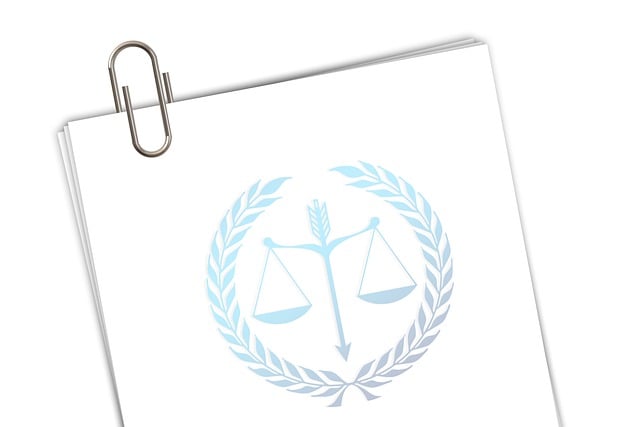Healthcare law firms act as guides in medical legal matters, offering expertise in regulatory compliance, insurance disputes, and patient rights. While they provide defense for complex cases, individuals can handle minor personal injury claims independently by understanding their rights, gathering evidence, and adhering to statutes of limitations. Self-representation requires thorough research and documentation. For intricate cases, engaging a specialized healthcare law firm without a lawyer offers strategic guidance and advocacy to protect rights and achieve favorable outcomes.
In the complex landscape of healthcare law, specialized firms play a pivotal role in safeguarding patient rights and navigating intricate regulations. This article delves into the world of healthcare law firms, exploring their expertise and how they contribute to a vital yet often misunderstood sector. We’ll guide you through personal injury claims, focusing on scenarios where legal representation isn’t mandatory, and provide a step-by-step process for filing without a lawyer. Additionally, we’ll shed light on your rights and responsibilities as a claimant in this intricate legal domain.
- Understanding Healthcare Law Firms: Their Role and Expertise
- Navigating Personal Injury Claims: When a Lawyer is Not Necessary
- The Process: Step-by-Step Guide for Filing Without Legal Representation
- Rights and Responsibilities: What You Need to Know as a Claimant
Understanding Healthcare Law Firms: Their Role and Expertise
Healthcare Law Firms play a pivotal role in navigating complex legal landscapes within the medical industry. Their expertise spans a wide range of areas, from regulatory compliance and insurance disputes to professional liability and patient rights. These firms are equipped to handle intricate matters, including personal injury claims, even when clients choose to proceed without a lawyer. Many focus on providing robust legal defenses for healthcare providers, ensuring they can navigate challenging situations and win challenging defense verdicts.
By leveraging their deep understanding of medical practices and legal systems, these specialists offer invaluable guidance. They assist in interpreting complex regulations, managing insurance claims, and protecting the rights of patients and healthcare professionals alike. Their work extends beyond legal battles, as some firms also engage with philanthropic and political communities, advocating for policy changes that positively impact healthcare delivery and access to justice.
Navigating Personal Injury Claims: When a Lawyer is Not Necessary
Many individuals wonder if they need a lawyer when considering a personal injury claim, especially for smaller incidents or when dealing with insurance companies directly. While legal representation is beneficial in complex cases, there are instances where filing a personal injury claim without a lawyer is feasible and may even result in a favorable outcome.
Navigating the legal process independently can be less expensive and time-efficient for simple claims involving minor injuries and straightforward circumstances. For example, if you’ve been involved in a fender bender with no significant injuries or property damage, it might be possible to negotiate a settlement directly with the insurance company. However, it’s crucial to understand your rights and any applicable statutes of limitations. A personal injury claim without a lawyer is achievable through meticulous documentation, gathering evidence, and understanding legal procedures, potentially leading to a complete dismissal of all charges if handled correctly. This option is particularly appealing for corporate and individual clients seeking swift resolution with an unprecedented track record of success.
The Process: Step-by-Step Guide for Filing Without Legal Representation
Filing a personal injury claim without legal representation can seem daunting, but with careful navigation, it’s entirely possible. The first step is to assess your case and gather all relevant information. This includes documenting any injuries, medical bills, and evidence related to the incident, such as police reports or witness statements. Creating a detailed account of what happened and its impact on your life is crucial for building a compelling case.
Next, research the statute of limitations in your jurisdiction, which sets a deadline for filing claims. After gathering your materials, file a claim with the appropriate court. This process often involves filling out specific forms, providing your contact information, and detailing the parties involved. Across the country, many courts offer self-help resources to guide you through this step. Once filed, be prepared for potential challenges like insurance company negotiations or even jury trials, but having thorough documentation will help strengthen your case and avoid indictment.
Rights and Responsibilities: What You Need to Know as a Claimant
As a claimant navigating healthcare law issues, understanding your rights and responsibilities is crucial. When considering a personal injury claim without a lawyer, it’s essential to be aware that you have the right to seek compensation for medical malpractice or negligence that has caused harm. This includes the right to file a lawsuit and present your case in court. However, it’s also important to recognize your responsibilities, such as gathering thorough documentation of your injuries and treatment, complying with legal deadlines, and adhering to ethical guidelines when pursuing a claim.
Having an unprecedented track record of winning challenging defense verdicts, reputable healthcare law firms serve both corporate and individual clients by ensuring their rights are protected. While representing yourself in court is an option for a personal injury claim without a lawyer, it’s often complex and fraught with potential pitfalls. Engaging the services of such a firm can help level the playing field, offering specialized knowledge, strategic guidance, and aggressive advocacy to achieve favorable outcomes—especially when dealing with intricate healthcare legal matters.
While healthcare law firms offer invaluable expertise, navigating a personal injury claim without legal representation is feasible. Understanding the process and your rights is key. If your case is straightforward, you may be able to handle it yourself by following the step-by-step guide provided. However, complex cases often require professional assistance, highlighting the importance of informed decision-making when considering a personal injury claim without a lawyer.






